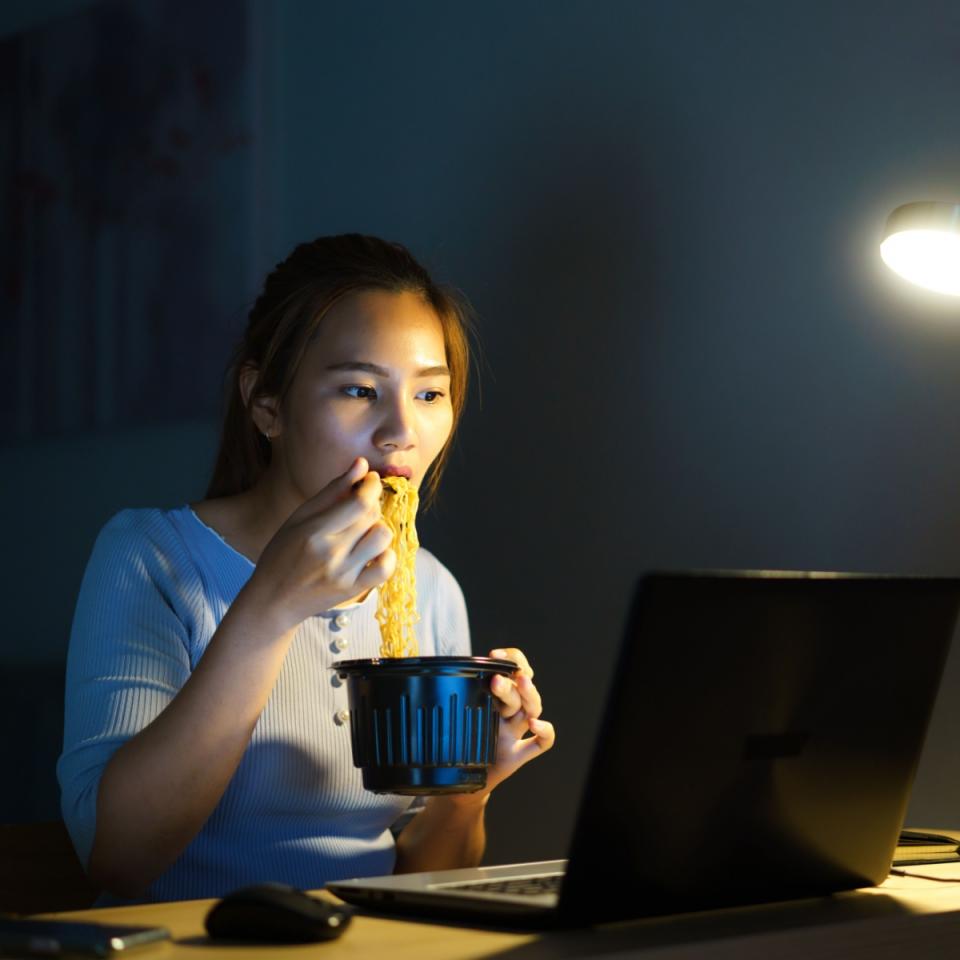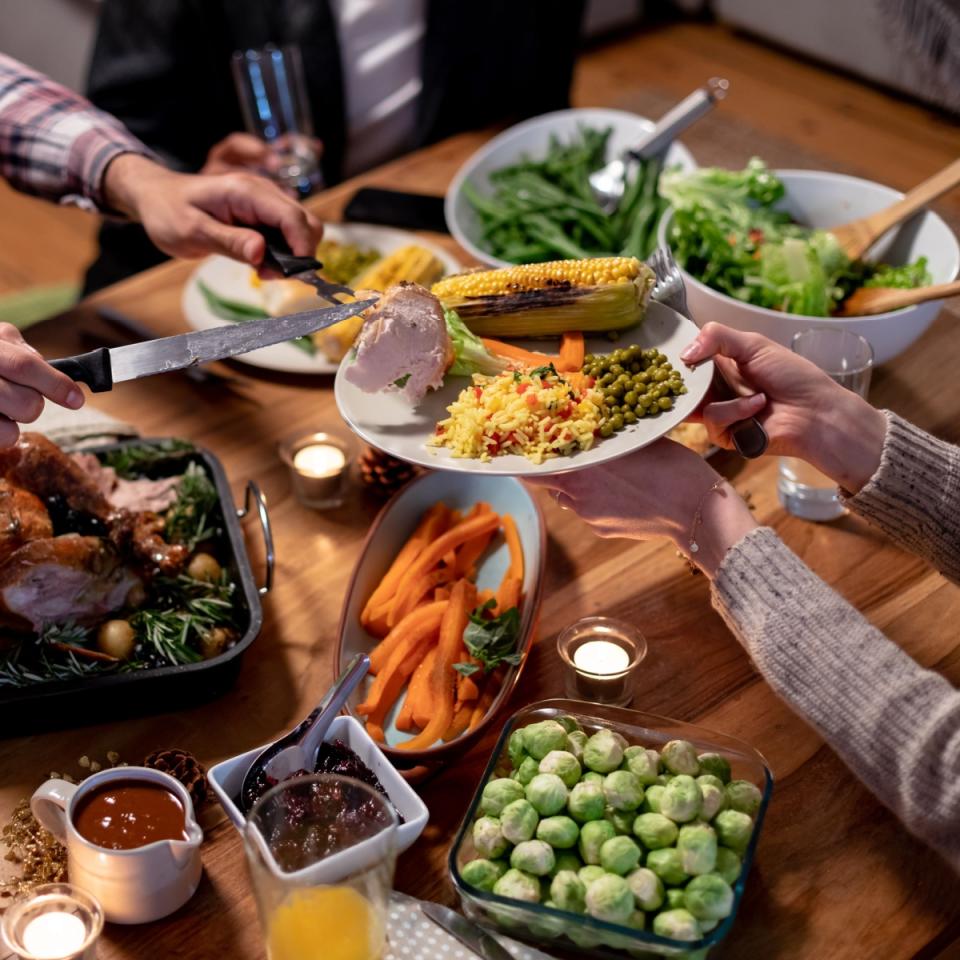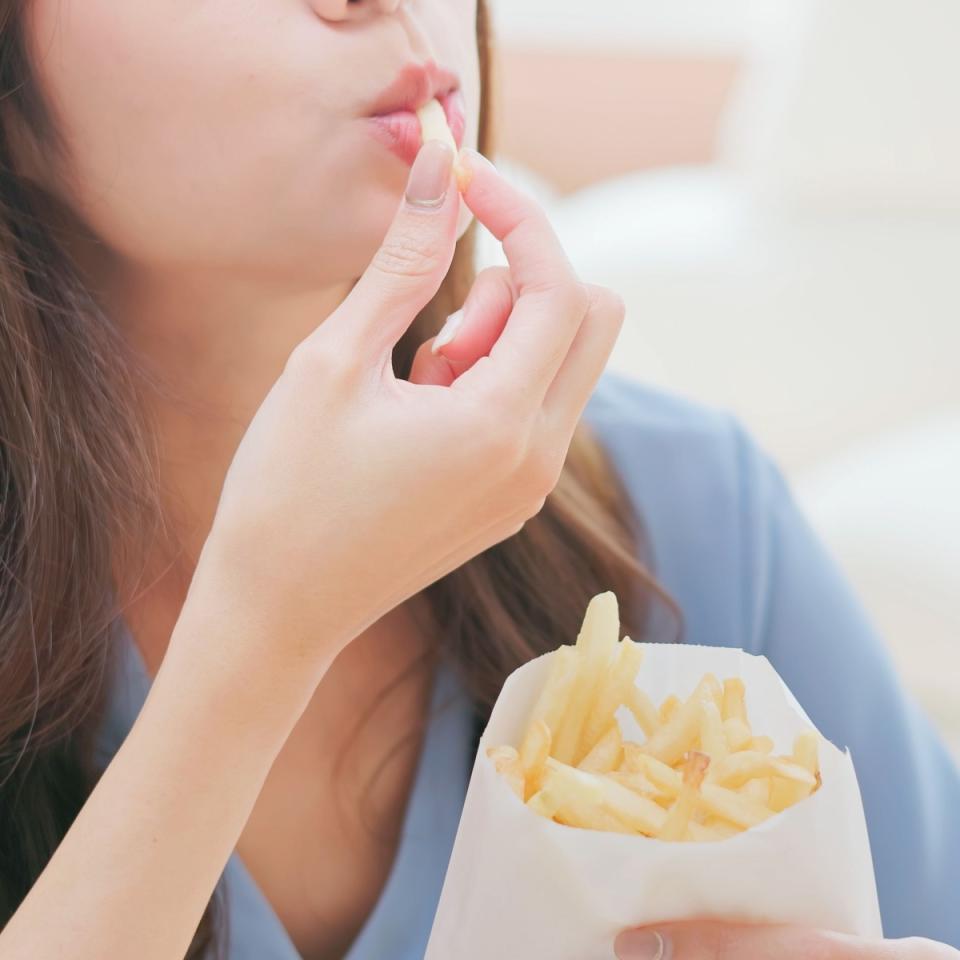5 Nighttime Mistakes That Almost Always Lead To A Bloated Stomach In The Morning, According To Experts: Drinking Carbonated Beverages At Night & More

Bloating is a common digestive issue characterized by feelings of fullness, discomfort, and abdominal distension. While occasional bloating can be normal, certain nighttime habits or mistakes can exacerbate this condition and lead to waking up feeling bloated in the morning. Understanding these nighttime triggers and making simple adjustments to your routine can help alleviate bloating and promote a more comfortable start to your day.
To find out the worst nighttime mistakes to avoid for bloating in the morning, we checked in with Kimberley Wiemann, MS, RDN, a registered dietitian and nutrition consultant for Consumer Health Digest. She revealed that drinking carbonated beverages at night, eating too late at night, eating too much fiber at night, consuming foods high in sodium, and eating too quickly are habits to avoid. Read on to learn more.

1. Drinking Carbonated Beverages At Night
Carbonated beverages contain carbon dioxide gas, which can get trapped in the digestive system when consumed. This gas can accumulate in the stomach and intestines, leading to feelings of bloating and discomfort.
Wiemann says, "Drinking too much soda, seltzer, beer, or other carbonated drinks can cause too much air to build up in your digestive system. Then, when you are sleeping, the air is not able to escape, so it gets stuck in your belly."

2. Eating Too Late At Night
Your metabolism tends to slow down during sleep, which can further delay the digestion process. This slowdown can cause food to ferment or produce gas in the digestive system, contributing to bloating. Eating late at night can increase the risk of acid reflux or heartburn, especially if you consume acidic or spicy foods. This can lead to discomfort and bloating in the morning as the stomach acids may rise up into the esophagus and cause irritation.
She elaborates further on this mistake and says, "Eating too much at night, especially junk foods or foods high in sodium, can lead to bloating because the food just sits in your stomach and does not digest as well since you are not moving around as you would during the day."

3. Eating Too Much Fiber At Night
While fiber-rich foods are great for you, eating too much of them, especially when your body isn't used to that much fiber, can lead to digestive issues.
"While fiber is tremendously beneficial for our health, it also may lead to excess bloating and gas. As fiber is digested in the colon, it produces gas as a byproduct, which can lead to some bloating and discomfort," says Wiemann.
If you're increasing your fiber intake or simply love fiber-rich foods, do so gradually over several days to allow your digestive system to adjust. Pair fiber-rich foods with lean proteins, healthy fats, and moderate portions of carbohydrates to create balanced meals that support digestion.

4. Consuming Foods High In Sodium
Processed foods, such as canned soups, packaged snacks, and fast food, are often high in sodium. Sodium is known to cause water retention in the body. When you consume foods high in sodium, your body may retain water to dilute the sodium concentration, leading to bloating and puffiness, particularly noticeable in the morning.
"Sodium holds on to extra fluids in our bodies. This is why sometimes, after an especially salty meal, it looks like we gained a few pounds on the scale or our pants are a little too snug. It’s for this reason that extra sodium can cause extra bloating," she states. Noted!

5. Eating Too Quickly
Believe it or not, when you eat quickly, you tend to swallow more air along with your food. This excess air can get trapped in your digestive system, leading to bloating and other problems. Properly chewing food helps break it down into smaller pieces, making it easier for digestion to occur.
Wiemann says, "Some people eat their meals faster than their neighbors can take just a couple bites! Not only does this take away the enjoyment of eating, but it can also cause extra gas and bloating! When people eat too quickly, they are often swallowing extra air with every bite." She adds, "The extra air gets trapped in our system looking for a way out! Before it finds its way out of the body, it causes extra bloating and discomfort."
Take your time to chew your food thoroughly and savor each bite. Don't forget to pay attention to your body's hunger and fullness cues to avoid overeating.

